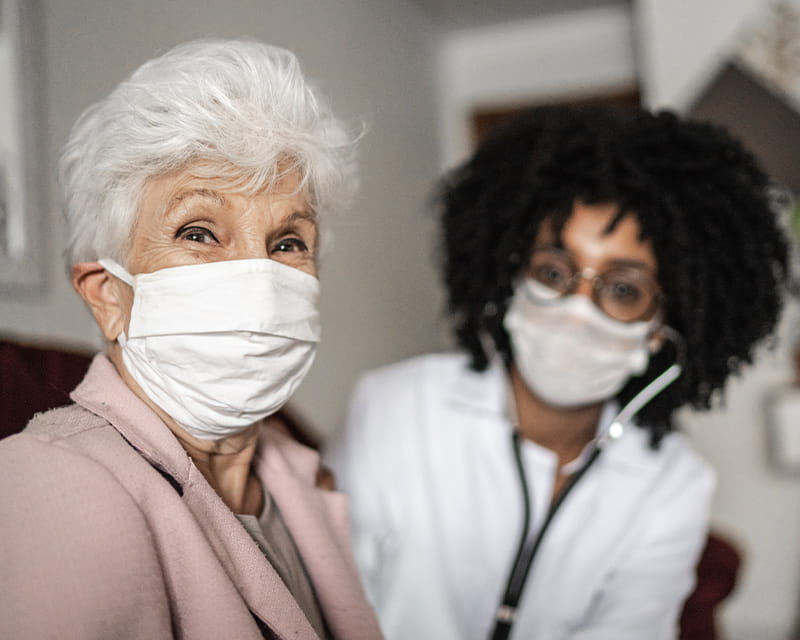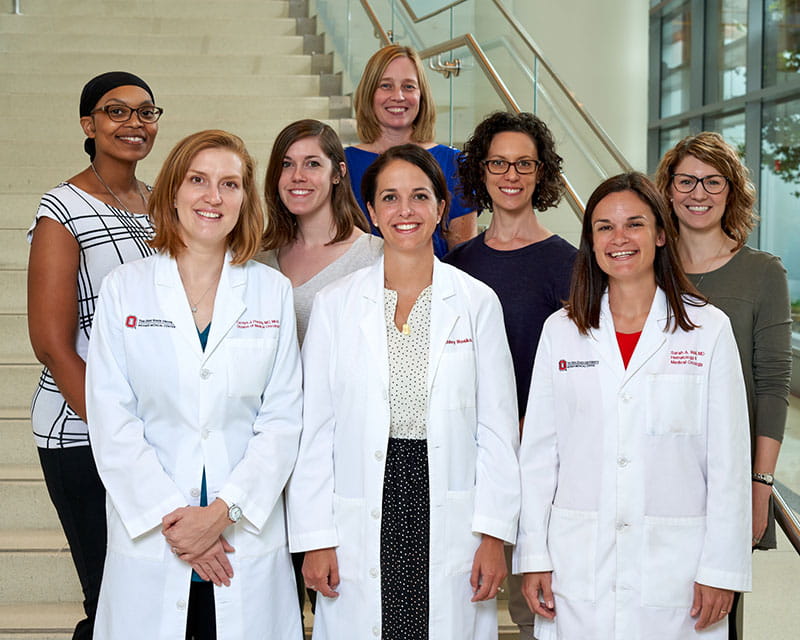
Ohio State offers comprehensive, research-driven care developed specifically for older adults with cancer
 A novel clinic at The Ohio State University Comprehensive Cancer Center – Arthur G. James Cancer Hospital and Richard J. Solove Research Institute (OSUCCC – James) is setting new standards in cancer care for older adults and helping physicians understand how age-related factors impact quality of life and treatment outcomes.
A novel clinic at The Ohio State University Comprehensive Cancer Center – Arthur G. James Cancer Hospital and Richard J. Solove Research Institute (OSUCCC – James) is setting new standards in cancer care for older adults and helping physicians understand how age-related factors impact quality of life and treatment outcomes.
Through the Cancer and Aging Resiliency (CARE) Clinic, older patients with cancer receive thorough assessments, treatments and follow-up care tailored to their individual needs. This multidisciplinary clinic offers patients comprehensive care focused on their oncologic needs as well as any needs associated with aging. Patients also have access to innovative clinical trials, including a National Institutes of Health-funded study investigating the benefits of exercise intervention for older adults with blood cancer.
Established in 2016, Ohio State’s CARE Clinic provides a convenient, “one-stop” experience for older adults living with cancer. During a two-hour visit, patients see a pharmacist, physical therapist, nutritionist, audiologist, nurse case manager, a nurse specializing in cognitive assessment and a hematologist or medical oncologist.
“When patients are diagnosed with cancer, physicians traditionally focus on the cancer itself, including the staging, indicated treatments and potential toxicities,” says Ashley Rosko, MD, CARE Clinic co-director and medical director of the Oncogeriatrics program at the OSUCCC – James. “But for older adults, there are many physical, cognitive and support issues that are often overlooked due to time limitations, even though they’re an important part of overall health.”
Clinicians in the CARE Clinic evaluate patients with geriatric assessment tools that score their overall fitness for tolerating intense or lengthy treatments. Factors include:
The team then creates tailored plans for optimizing each patient’s quality of life during and after cancer treatment. These care plans, which are managed by the patient’s primary oncologist in collaboration with CARE Clinic providers, may include referrals to physical therapists, strategies for gaining weight or orders for durable medical equipment.
For Dr. Rosko and her colleagues, geriatric oncology research is key to transforming outcomes among older adults with cancer.
“Generally speaking, cancer is a disease of older adults,” Dr. Rosko says. “However, many of today’s treatments are either thought to be too aggressive for people over 65, or they’re so new we don’t fully understand how older adults will respond to them.”
One of Dr. Rosko’s research priorities is to understand how biologic age, instead of chronological age, impacts a patient’s ability to tolerate harsh cancer therapies.
“Some 70-year-olds are as healthy as 50-year-olds, while some 50-year-olds are more frail than people 30 years their senior,” she says. “We need to look beyond literal calendar years to evaluate someone’s potential resilience to cancer treatments.”
In 2018, Dr. Rosko published a study confirming that geriatric assessment tools can help predict whether older patients with multiple myeloma face a higher risk of morbidity following autologous stem cell transplant. Another study enrolling older patients with blood or lung cancers aims to identify geriatric factors that can predict toxicity in chemotherapy.
“Our efforts to target older cancer patients are relevant because this population is historically undertreated and tends to have inferior outcomes,” Dr. Rosko says. “I'm confident that, with continued research, our findings will ultimately lead to higher survival rates and better quality of life.”
To learn more about Ohio State’s CARE Clinic, including how to adopt this model at your own institution, please contact Dr. Rosko at Ashley.Rosko@osumc.edu.